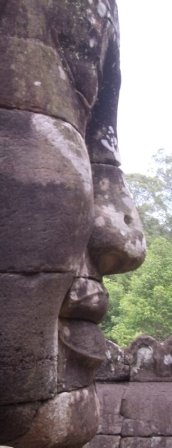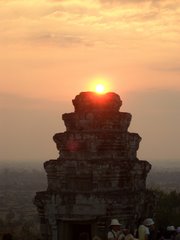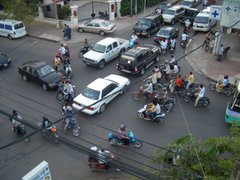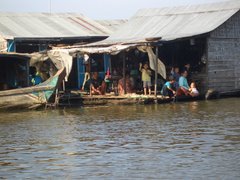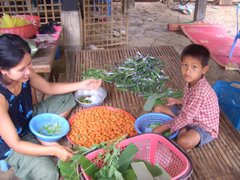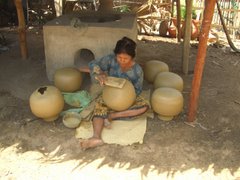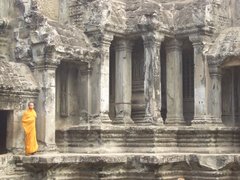

The first day we visited the WOW group, a community based organization of women who have formed a Self Help Group. SHG’s are small organizations of villagers who want to save money or start a business and collaborate with others to do so. Hai (in purple top on left), the leader, is a quiet mannered woman who has a strong backbone and the respect of her fellow villagers. She has engaged in enterprise development and she, along with her fellow villagers, have enjoyed a better lifestyle because of it.
I met with a group of about 10 women for about 90 minutes. Not a word of English was spoken, but my interpreter did a pretty good job. He and I had OUR moments of trying to understand each other as well! Working through translators is really challenging. Occasionally I’ll pick up on words that are being used, which helps immensely with context, but it is an experience that evades me often.
The next day Albert, a VSO volunteer from the Philippines, and I drove way out into the sticks to visit another community fishery and its leaders. They are working on creating alternative livelihoods because fishing only happens for several months of the year. The rest of the time they farm rice or grow the occasional green crop. Most people in rural areas engage in several income generating activities to make ends meet.
A huge problem for them is getting a decent price for their goods because they live so remotely and are so far removed from the markets that they have to depend on middlemen to do the trading for them. Thus they get a very low, often less than subsistence price for their produce. It’s a story that is played out over and over across all livelihoods in Cambodia and a key problem that I am working on in my project.
 The rest of the week I was involved in meetings of the VSO Livelihoods volunteers and Programme Office staff. 24 of us met at Ptea Teuk Dong, a center that houses, rehabilitates, and retrains street families, many of whom are the long term fallout victims of the Khmer Rouge days. This is an amazing place, where families get proper nutrition, medical care and bankable craft training so they can leave in 12 months and restart their lives on their own.
The rest of the week I was involved in meetings of the VSO Livelihoods volunteers and Programme Office staff. 24 of us met at Ptea Teuk Dong, a center that houses, rehabilitates, and retrains street families, many of whom are the long term fallout victims of the Khmer Rouge days. This is an amazing place, where families get proper nutrition, medical care and bankable craft training so they can leave in 12 months and restart their lives on their own.PTD houses about 140 people, 80 of whom are children. At the end of one year they are given a plot of land and a modest traditional house on stilts with a little money to start their business, such as mat making, rattan furniture building, sewing, or another trade. The cost is less than $2,000 per family to do all of this, for an entire year AND setting up the family in their home! They have a 95% success rate. If any of you are interested in donating to this worthwhile charity I can provide more information.









